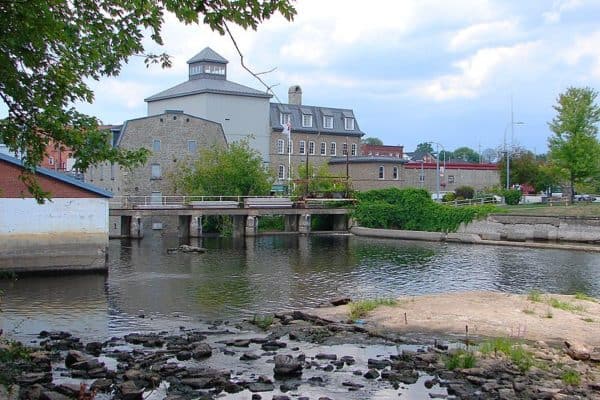
 We’re nearly one year into the legalization of cannabis in Canada and we’ve heard all about the shortage of supplies, the ever-changing municipal regulations and allotment of retail stores in Ontario, but there is one theme that I think has completely flown under the radar; the potential long-term economic benefits and positive impact the cannabis industry is having on communities across the country.
We’re nearly one year into the legalization of cannabis in Canada and we’ve heard all about the shortage of supplies, the ever-changing municipal regulations and allotment of retail stores in Ontario, but there is one theme that I think has completely flown under the radar; the potential long-term economic benefits and positive impact the cannabis industry is having on communities across the country.
It’s no secret that from coast-to-coast many communities have been hit by changes in manufacturing cycles. Over a five-year period, the city of Smith Falls, Ontario, saw three factories close (most notably, the Hershey plant shutdown) resulting in a total loss of 1,500 jobs for a city of 9,000.
There is also the remote town of Atholville, New Brunswick, which was hit hard during the recession, leaving the area with one of the highest unemployment rates in the region with little optimism as the young and educated moved away in search of opportunities.

But fast forward a few years and what was once bad news story after bad news story now has a different tune. Communities have been able to leverage the cannabis boom to transform their city’s economy and bring prosperity and opportunities to local residents. They’ve even started to see a shift in young people returning to their hometowns and finding jobs and supporting local economies.
The Hershey plant in Smith Falls is now an operations facility for Canopy Growth, where the company has created about 800 direct jobs in the community since it took over the Hershey factory, and in Althoville, Zenabis Global Inc. opened a facility that now employs 250 workers with plans to increase headcount to 500 as it continues to expand.

Along with factories and job creation, many communities are also seeing the benefit cannabis revenue can have in terms of social impact within local communities. In Cowichan Valley, B.C., a partnership led by Cowichan Tribes is planning to open the first legal cannabis store in the area next month. With over 600 people on the waiting list for homes, Chief William (Chip) Seymour hopes that the revenue that could be generated from a cannabis retail store may help with housing and overcrowding issues.
As the industry continues to grow and flourish, and as Canada cements itself as a world leader in the cannabis space, it’s safe to say that we will continue to hear great stories of local communities across the country benefiting from the economic impact this nascent industry is creating.
This article is provided for information purposes only, is not intended to provide any type of advice. This article is not an endorsement or recommendation of any securities or industry referenced herein. Views, comments or opinions expressed in this article are those of their respective contributors only, and are not necessarily endorsed by TMX Group Limited, any of its affiliates or their respective management or employees.
Leave a Reply
You must be logged in to post a comment.



 Share
Share Tweet
Tweet Share
Share




Comment